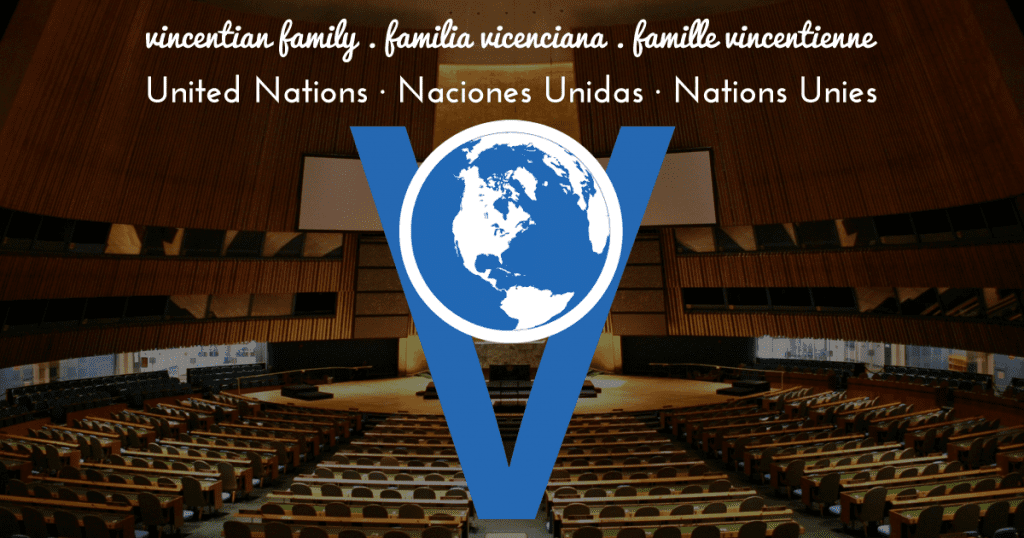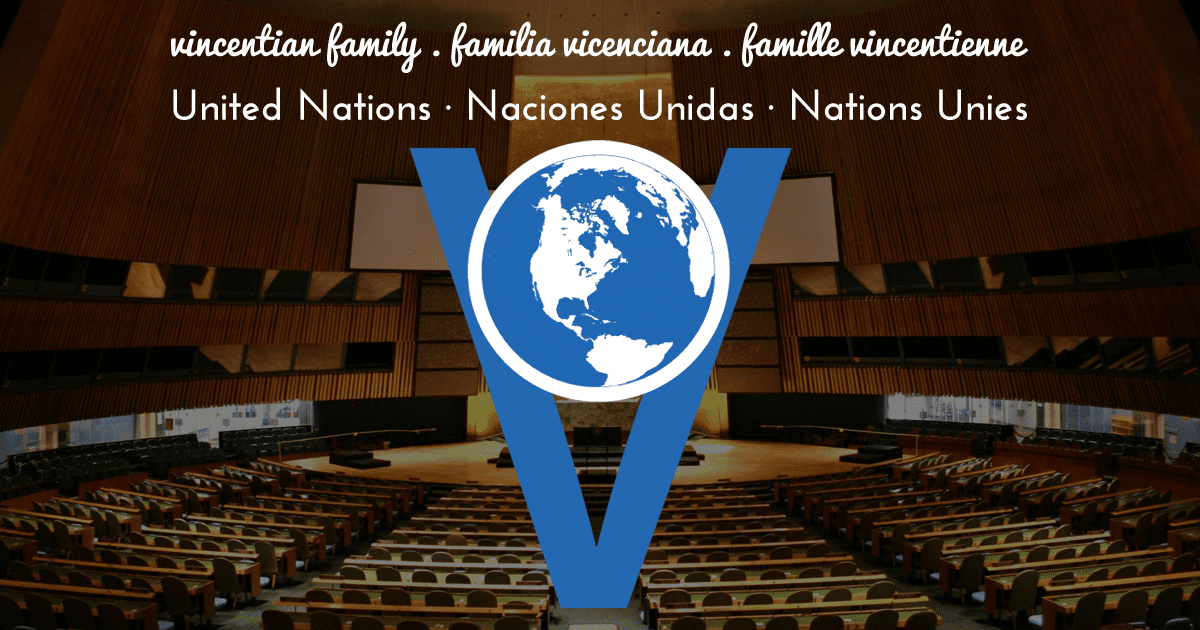United Nations NGO Working Group to End Homelessness
United Nations NGO Working Group to End Homelessness
An Initiative of the Coalition of Vincentian Family NGOs

Despite its significant impact on both individuals and cities, street homelessness has been left behind in global debate. This issue is at the heart of current issues, including social protection floors, and is especially important as street homelessness is the clearest evidence that states are failing to meet their obligation to provide housing as a basic human right.
As we all know, the Vincentian Family (VF) celebrated the 400 years anniversary of our Charism with a new global commitment to end homelessness. For this reason, the leaders of the VF created an international commission to lead the Vincentian Family Homeless Alliance under the direction of Mark McGreevy Chief Executive of DePaul International and founder and director of the Institute for Global Homelessness (IGH) at DePaul University in Chicago. The commission drafted a plan in which United Nations advocacy to end homelessness is an essential component.
The members of the Coalition of the Vincentian Family’s NGOs at the UN committed to make homelessness the common focus of their advocacy work. On November 7, 2017 a new UN NGO Working Group to End Homelessness (WGEH) was created. So far, 19 NGOs have joined this initiative. An array of countries (Brazil, Madagascar, UK, Iceland, Ghana, Ireland, etc.) have shown interest in bringing homelessness to the main socio-political forums to try to include it in official resolutions. We want to link this theme to all conversations about SDGs 1 (No poverty), 3 (Good health and well-being)), 10 (Reduce Inequalities), and most especially with Goal 11: “Make cities and human settlements inclusive, safe, resilient and sustainable.”
Street homelessness affects us all – men and women, families with children, youth, the elderly, and people with disabilities. It occurs in nearly all nations and has severe negative impacts on both individuals and on cities. Housing is the foundation for dignified, decent and rewarding lives. Evidence across the world demonstrates that street homelessness dramatically affects health and makes it more difficult to access employment or to exit extreme poverty. Street homelessness is growing in many parts of the world, and people who experience it are in danger of “being left behind” in the 2030 Agenda and in the wider effort to eradicate poverty.
Because most countries do not accurately measure street homelessness, and those that do use different methods, we cannot at this stage generate an accurate estimate of the global extent of homelessness. However, the most recent approximations make clear that this is a challenge at a global scale. For example, in 2005 the Special Rapporteur on Adequate Housing as a Component of the Right to an Adequate Standard of Living reported that “United Nations estimates indicate that approximately 100 million people worldwide are without a place to live. Over 1 billion people are inadequately housed.”
We created a strategic partnership with the Institute for Global Homelessness (IGH)at DePaul University. IGH has an International Conference every year. The 2019 conference was moved to New York around the UN to create an international momentum in our collective advocacy efforts. “IGH expects 150-200 high-level attendees. We expect 60-70% to be carefully selected, prominent leaders on homelessness from across six continents. This may include policymakers, researchers, practitioners and in some cases people with direct lived experience of street homelessness. We expect the remaining attendees to be country-level ministers and delegates; experts on processes within the United Nations; and leaders who have shaped and made progress on existing global goals within the SDGs, especially SDGs 1, 3, 10 and 11.”
This year we have Mark McGreevy to speak in the experts’ panel of the Commission for Social Development (February 2018). It was the first time that the name of the Vincentian Family was mentioned in an official meeting at the United Nations. With him we organized a side-event at the UN in collaboration with the Irish Mission.
We met with the director of the UN New York office of HABITAT, Chris Williams. He expressed much interest to work with us in the years to come. We are planning a meeting with the UN Special Repertoire for the right to adequate housing during his visit to report to the General Assembly in September.
In conversations with the group the creation of an International Platformwas recommended to create awareness and to associate different organizations working to end homelessness worldwide. The Vincentian Family Homeless Alliance recommended Rosanne Haggerty to lead this initiative. The Platform was established this year and we already met with Rosanne to strategize together. We recommended Rosanne Haggerty’s name to speak during the United Nations High Level Political Forum in July/2018 when the UN will gather to review Goal 11 of the UN agenda: “Make cities and human settlements inclusive, safe, resilient and sustainable.”
Our Vincentian Family option to contribute to end Homelessness is a human rights-based decision/commitment. The Universal Declaration of Human Rights recognizes housing as a human right. According to the UN Committee on Economic, Social and Cultural Rights, the human right to adequate housing consists of seven elements: (1) security of tenure; (2) availability of services, materials, and infrastructure; (3) affordability; (4) accessibility; (5) habitability; (6) location; and (7) cultural adequacy. People experiencing street homelessness do not have access to housing or shelter that meets these criteria, and sometimes are in situations in which not even one of these criteria is met. JOIN US, LET DO THIS TOGETHER!
Guillermo Campuzano, CM is the Congregation of the Mission UN representative and Chair of the UN NGO Working Group to End Homelessness








0 Comments